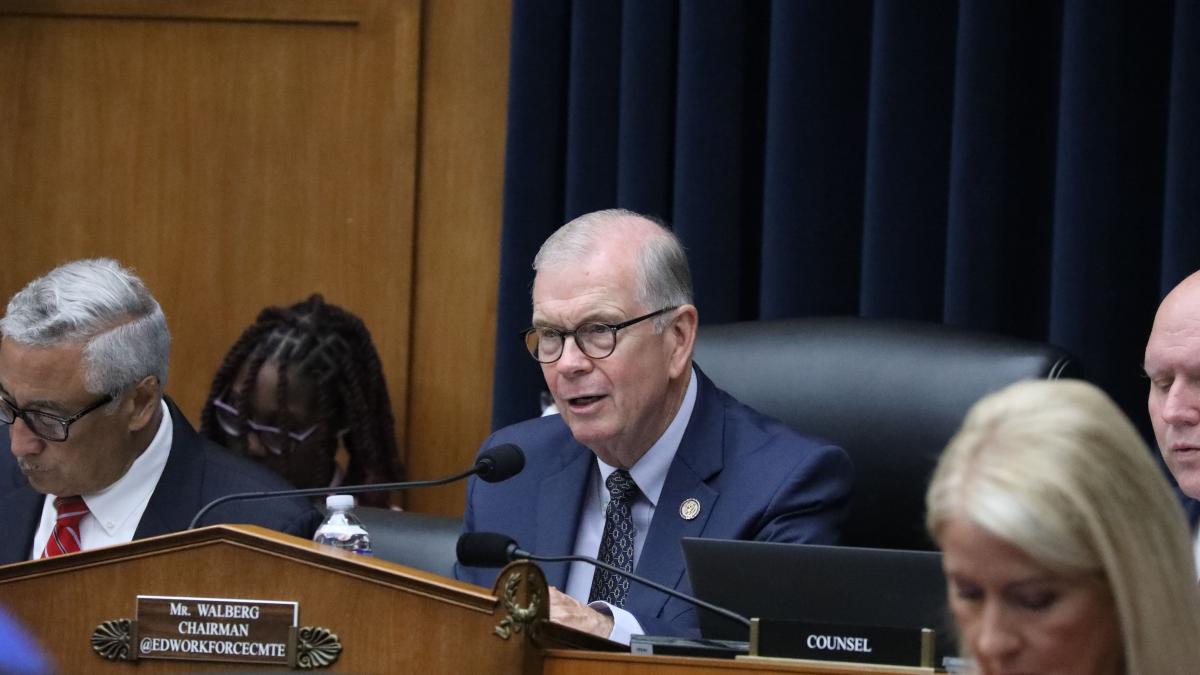Thumbwind: China-CCP Tied Bioagent Smuggling at University of Michigan Sparks Federal Inquiry

Three powerful House committee chairmen — John Moolenaar, Tim Walberg, and Brian Babin — have launched an inquiry into a suspected agroterrorism incident tied to the University of Michigan, raising alarms over potential national security threats involving Chinese Communist Party (CCP)-affiliated researchers working in U.S. taxpayer-funded laboratories.
In two letters dated June 18, 2025, the committees requested detailed records from both the University of Michigan and federal agencies including the National Institutes of Health (NIH) and the National Science Foundation (NSF). The letters follow recent criminal charges filed by the U.S. Department of Justice against Yunqing Jian, Zunyong Liu, and Chengxuan Han, all of whom are Chinese nationals accused of illegally smuggling dangerous biological materials into the United States for use at the Ann Arbor-based research institution.
The chairs demanded a full review of NIH and NSF grant awards — totaling more than $9.6 million since 2010 — received by Professors Ping He and Libo Shan, who supervised or collaborated with the charged individuals. The incident has raised questions about the integrity of U.S. academic research partnerships with institutions in China.
According to court filings and congressional documents, Jian and Liu allegedly smuggled samples of Fusarium graminearum, a toxic fungus considered a potential agroterrorism weapon, into the U.S. via concealed packaging. The pathogen is responsible for head blight, a disease devastating to global wheat, rice, and barley crops. It also produces mycotoxins harmful to human and animal health.
The DOJ complaint cited WeChat conversations between Jian and Liu discussing smuggling tactics. Liu admitted he planned to conduct experiments using the fungus in the Molecular Plant-Microbe Interaction Lab at UM. Jian had previously conducted research at Zhejiang University, a Chinese institution co-administered by China’s defense authorities, before joining UM as a postdoctoral fellow in 2022.
The congressional letters allege that both Professors Shan and He had dual academic affiliations in China while working under U.S.-funded grants. Some publications co-authored by Jian and Liu also acknowledged support from both U.S. and Chinese government agencies. One letter cites that Liu was listed as a “Hundred Talents Program” recruit — part of a CCP initiative to develop scientific leadership aligned with state interests.
Rep. Moolenaar and his colleagues argue this pattern suggests systematic attempts by the Chinese government to gain access to sensitive biotechnological research.
The letters from Congress demanded that NIH and NSF investigate whether any of their grants violated security protocols, whether intellectual property was compromised, and what steps the agencies are taking to screen foreign nationals. The University of Michigan was also asked to provide detailed responses on its internal compliance processes, lab access controls, and oversight of foreign research personnel.
The university has until July 2, 2025, to respond.
This incident unfolds amid a broader political effort to assess and curb the influence of CCP-affiliated researchers in U.S. academic institutions. In January, UM announced it would sever its joint research institute with Shanghai Jiao Tong University following a previous inquiry from Chairman Moolenaar.
The fallout may impact not only the University of Michigan’s reputation but also future eligibility for federal funding. Federal lawmakers have emphasized the need to “protect the U.S. research ecosystem from undue foreign influence,” especially in biological sciences with dual-use applications that could be exploited for bioweapons development.
So far, neither NIH nor NSF has issued a public statement on the inquiry. The University of Michigan has confirmed receipt of the letter but has not commented beyond a brief statement noting it is cooperating with federal authorities.